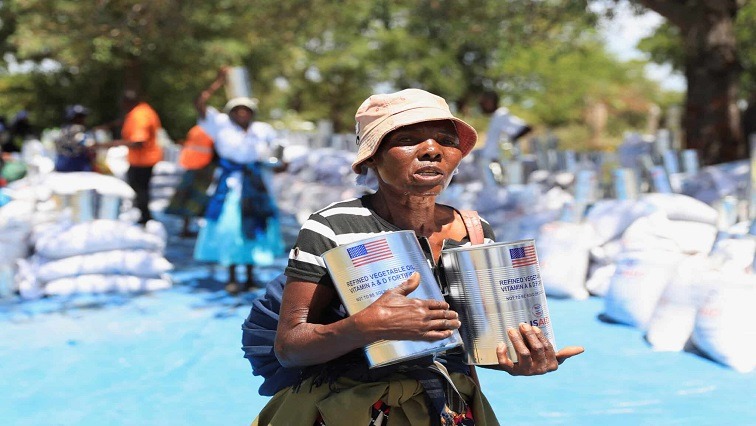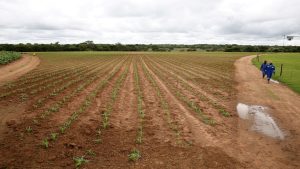Zimbabwean authorities are set to announce a fresh and revised drought aid appeal, as the impact of the El Niño-induced drought worsens.
In April, Zimbabwean President Emmerson Mnangagwa declared the 2023-2024 agricultural season a national state of disaster and further indicated that his country would require over two billion dollars to avert food insecurity.
According to the government’s crop assessment report, the maize harvest for the current season has decreased by more than 72% compared to the previous season.
The ongoing El Niño weather phenomenon has drastically slashed rainfall across Southern Africa, resulting in reduced harvests for the many farmers who depend on rain-fed agriculture.
The prolonged heat has also worsened the situation including that of urban families as the number of food insecure households continues to rise.
As a result, authorities are making a renewed appeal for assistance.
Zimbabwean information minister Jenfan Muswere says, “The state of disaster exists in all rural and urban areas in Zimbabwe. The appeal is premised on three areas namely search, rescue, mitigation, and resilience building. Search and rescue involves the identification and provision of assistance to beneficiaries while mitigations relate to the measures put in place to avert the impact of El Nino induced drought. Resilience pertains to initiatives aimed at strengthening community capacities for sustainable livelihoods in order to cope with the disaster.”
Coupled with climate change, the implications of the El Niño drought are multifaceted.
A surge of pests and diseases affecting crop yields has also been noted.
Meanwhile, Zimbabwean Agriculture Minister Anxious Masuka says, “With Zimbabwe predicted to become drier in the decades ahead, it can be expected that pests and diseases will increase, not just for the cops but for humans. Malaria will be found in higher elevation areas because it is going to be warmer. Tsetse-fly which is predominately in the lower veld will begin to encroach on other warmer areas. We anticipate that the fall armyworm for example which was detected a couple of seasons ago and has become endemic in the country will continue to cause havoc. We have seen more incidents of this pest this year.”
The Zimbabwean government has been working with various aid agencies to undertake emergency food distribution to vulnerable households throughout the country.
Although some humanitarian agencies have been providing immediate relief to vulnerable families, others have been working on long-term and sustainable solutions, fostering resilience and building community assets.
Care International’s country director in Zimbabwe, Patrick Sikana, says the government’s action comes at a crucial time.
“This intervention has actually demonstrated that there are communities that will go through this drought and come out more resilient. However, those communities are few. They are islands in an ocean of need. We hope that in this process we can galvanise resources that can help scale up these islands of home,” he says.
The Zimbabwean government has already indicated that it plans to import 1.4 million metric tons of grain from Brazil, Mexico, Russia, Argentina, and America.






